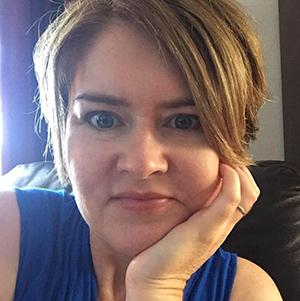BEHIND DOMESTIC LINES
★ ★ ★ ★
THE GHOST OF GENDER ROLES PAST

By Jami Ingledue
Almost all of the husbands I know, mine included, are modern men, men who believe in equality, who want to share the workload of home and parenting equally. And most of them would say they are doing just that.
But their wives tell a different story. Ask them and they will say, almost to a person, that the load is not actually equal. That the women do all kinds of labour, particularly mental and emotional, that the men aren’t even aware of. Sometimes they don’t even know the work actually exists.
Now, let me be clear: these men are the good ones. They are the men who consider themselves feminist allies. And the workload still isn’t equal. So what’s going on here?
It’s got to be bigger than the characters of individual men or specific marriages. And that’s important, because that’s what I’m talking about here: I am NOT criticizing my husband or my friends’ husbands or any individual man because, as I said, these are the good guys. So if it’s not because they’re bad or lazy men, what is it?
Some people think women are just “wired” to pay attention to the small things more than men, to keep track of details, to plan, to manage the schedule. But men are perfectly capable of doing all of this in their jobs, aren’t they?
But at home, for most of us, it’s a different story. The moms are still “in charge” of the home and the kids, even when they work outside the home. The moms carry the invisible mental load of remembering all of the small things that need to be done, of noticing when we’re low on toilet paper, of getting gifts for teachers and grandmas, of filling out school paperwork and making sure it’s in the backpack, etc. ad infinitum. And it’s exhausting.
There’s another kind of work moms do that’s even more invisible: emotional labor. We often carry the weight of everyone’s moods, and manage their emotional states: we adjust our own language and tone so as not to irritate or upset them, we tiptoe, we see it as our job to cheer them up, and, too often, to be a dumping ground for their bad moods. It’s one thing to do this for our children, as we are helping them to learn to manage their emotions; it’s another to do this for an adult who is supposed to be your partner and equal. And yet women have been conditioned our whole lives to do this for men—all men, not just our husbands.
This emotional labor, like the mental load, is completely invisible, sometimes even to the person who is doing the labor. And therein lies the problem, perhaps; maybe men don’t even know this work exists because IT’S ALWAYS BEEN DONE FOR THEM.
Privilege—male privilege, white privilege, straight privilege, whatever—is like water to a fish; you can’t see it because you’re in it. It’s normal, it’s reality. It’s only when you see someone who does not get the same benefits as you that you can even begin to understand that you have privilege; it’s only in the comparison that it becomes clear.
And I think this is what we’re facing now. Men so often don’t see the invisible work we do because they’ve never had to do it. The privilege of being a male in our society means they haven’t had to worry about those things, because the women in their lives take care of it. Many women I know have expressed their frustration at even attempting to have a conversation with their husbands about it, because they can’t even see what we’re talking about, especially when it comes to emotional labour. So they look at us like we’re crazy.
And to be fair, raising kids and home management has up until fairly recently been the sole domain of women. Now women have entered what was formerly the world of men, and are lawyers and doctors and CEOs. But those things are valued by our society. Caregiving is not. Mothering is not. So what motivation do men have to learn these things, besides an intrinsic desire for fairness (which many do possess), and to stop their wives from nagging? Not much.
Part of this male privilege that I’ve noticed is that men have the expectation of being able to relax in the evening, take a nap when they need a nap, stay in bed all day if they have a cold, etc. Women do not. That’s the way it’s always been, that’s the way we grew up.
So when both parents hit that wall of exhaustion, it’s the dad who says, “I’m tired, I’ve got to sit down.” And because we don’t want to upset them or start an argument or be considered a “nag” (there we are managing their emotional labor), we swallow down our frustration and our tiredness, and we pack tomorrow’s lunches and move the clothes from the washer to the dryer.
And the thing that makes this so hard is that we EXPECTED it to be different. We expected that our generation would have this figured out. We expected to have equal relationships and therefore equal workloads. And then we end up picking our husband’s clothes off the floor, silently seething but carefully monitoring our tone so we don’t irritate. Just like our moms did. Here we are, playing out the same old tired gender roles, just when we thought we were so evolved.
The only way for anything to change is to be aware of the ghost of those gender roles in the first place. It’s all still so invisible and hard to articulate. And these things are very slow to change.
And being stuck in these roles hurts men and women alike. Men end up emotionally stunted, out of touch with the emotional world and therefore unable to form deep connections with others, even when they want to, even with their kids. Whereas it comes naturally for women to gather together and discuss their deep feelings and important things happening in their lives and support each other, men are culturally conditioned to avoid this, and to avoid platonic touch. I look forward to my evenings out with other moms like an oasis, a time for connection and healing. Where do men get this?
And women are conditioned to avoid being assertive, to be the martyr, to suffer silently. Women could take a cue from men when it comes to asserting their needs, especially physical.
What does all of this conditioning lead to? Resentment. Resentment on every side, from every angle, from everyone.
And what is it getting us? How is it serving us? It’s only serving the patriarchy.
So shine the light on the ghost haunting us, lay it bare, see it for what it is. Then smash it all to the ground.

Jami worked as a librarian for over a decade before choosing to stay home when her son, now 4, was born. She also has a 17-year-old daughter. She makes all-natural soap and body products and sells them through her company, Dancing Bee Farms (dancingbeefarms.net). She lives with her husband, daughter, and son on an acre of land in rural Ohio, where they keep bees, garden, and brew beer.

DEAR READER
At The Wild Word we are proud to present some of the best online writing around, as well as being a platform for new and emerging writers and artists.
As a non-profit, the entire site is a labour of love.
If you have read the work in The Wild Word and like what we do, please put something in our tip jar to keep this amazing platform alive.
THANK YOU FOR YOUR SUPPORT!























